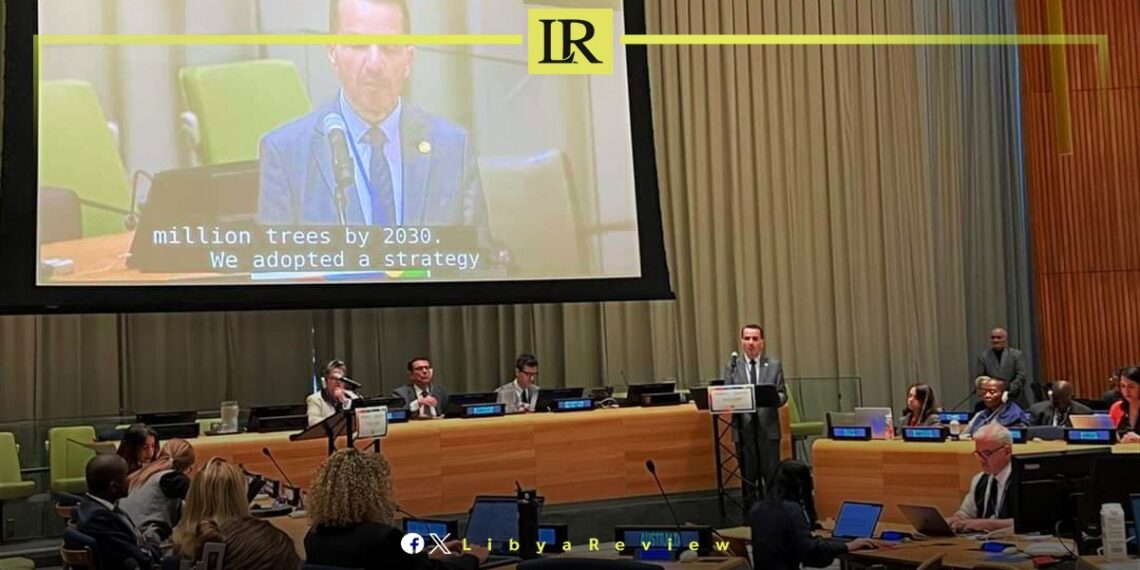On Saturday, Libya took a prominent role at the 2024 High-Level Political Forum (HLPF) on Sustainable Development, organized by the United Nations Economic and Social Council (ECOSOC).
The forum, themed “Accelerating the Implementation of the 2030 Agenda for Sustainable Development,” gathered global leaders to discuss progress and strategies towards achieving the Sustainable Development Goals (SDGs).
Leading the Libyan delegation was Acting Minister of Planning Mohamed Al-Zidani, joined by Acting Minister of Foreign Affairs Al-Taher Al-Baour, Libya’s Permanent Representative to the United Nations Al-Taher El Sonni, and Deputy Minister of Planning for Sustainable Development Affairs Nouri Al-Shater. Al-Zidani presented Libya’s second Voluntary National Review (VNR) for 2024, highlighting the nation’s efforts and progress in implementing the 2030 Agenda amidst ongoing challenges.
Prime Minister Abdul Hamid Dbaiba also delivered a recorded message, emphasizing the government’s dedication to integrating the 17 SDGs into national strategies and development policies.
Dbaiba underscored the importance of regional and international cooperation to expedite the achievement of these goals, stating, “Libya is determined to accelerate the adoption and integration of the SDGs into our national frameworks. We understand the critical role that collaboration plays in this global effort.”
Libya’s participation in the HLPF comes at a crucial time as the country navigates a complex political landscape while striving to rebuild its economy and social infrastructure. The 2030 Agenda for Sustainable Development, adopted by all United Nations Member States in 2015, provides a shared blueprint for peace and prosperity for people and the planet, now and into the future. Central to the agenda are the 17 SDGs, which call for action by all countries in a global partnership.
Despite significant internal challenges, including political instability and economic difficulties, Libya has demonstrated a firm commitment to the 2030 Agenda.
The government’s efforts, as showcased in the VNR, reflect an ongoing dedication to sustainable development, even in the face of adversity. The participation of high-level officials at the HLPF signifies Libya’s proactive stance in seeking international support and collaboration to foster sustainable development.
Libya aims to share its experiences, challenges, and successes with the global community, fostering a collaborative spirit essential for achieving the SDGs.
As the country continues to rebuild and stabilize, integrating the SDGs into national policies remains a top priority, with the government recognizing the importance of international cooperation in this endeavor. The commitments and strategies discussed at the HLPF will be pivotal in shaping Libya’s development trajectory in the coming years.


